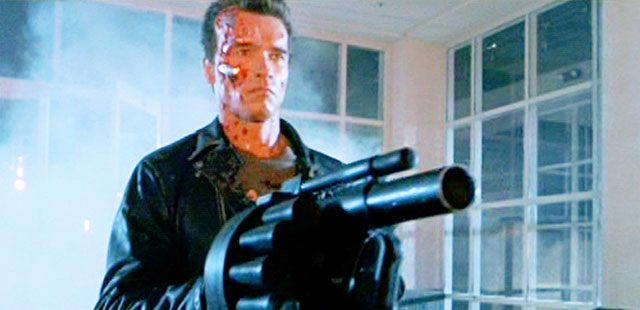
Summer season is upon us, and ordinarily, we'd be championing an onslaught of big-screen epics. Of course, 2020 isn't like other years, and we recognise that essential absence.
For that reason, while you eagerly await Cineworld's re-opening, we've decided to recap several pivotal summer blockbuster movies. These are the movies that get us to break out the popcorn, all the while as our eyes widen and our jaws go slack. In other words, each of the following epics bottles the magical, elusive essence of the crowd-pleasing, cinema-filling experience.
1. Jaws (1975)
Total box office gross $471 million
Steven Spielberg's pioneering creature feature navigated a famously choppy production to emerge as the original summer blockbuster. Adapted from Peter Benchley's novel, Jaws makes a virtue of the limitations brought on by its malfunctioning prop shark, instead using strong performances and the propulsive menace of John Williams' Oscar-winning score to terrify audiences.
Not only did the movie scare subsequent generations of moviegoers away from the sea, but it also revolutionised movie marketing. With its saturation release (over 450 screens, unheard of during the time) and aggressive merchandising tie-ins, Jaws rode the wave to gross more than $470 million worldwide. The film was actively presented to audiences as less a movie and more an event, with t-shirts, soundtrack albums, beach apparel and games all adding to the mystique of the film's titular man-eater. Every other movie was left floundering in its wake.
2. Star Wars: Episode IV - A New Hope (1977)
Total box office gross $775 million
What more needs to be said about the first Star Wars movie? Prompted by the success of his friend Steven Spielberg's Jaws, writer-director George Lucas conceived a spirited throwback to the adventure serials of his youth. Star Wars was devised as a solidly old-fashioned affair, flying in the face of the disillusionment and cynicism that had gripped so much of the 1970s. The characters would be archetypes in the timeless manner of The Wizard of Oz, and the film would draw on the appeal of mythical storytelling that abounds with emotional truth.
Like Jaws, Star Wars (later renamed A New Hope when Lucas' franchise started to take shape) had a troubled production. Even so, it was propelled by likeable performances, strong effects and, once again, the sturdy impact of an Oscar-winning John Williams, to become the most successful movie of all time. With the release of this film, anti-establishment gloom was out and popcorn-friendly spectacle was in, setting the benchmark for big-screen entertainment in the decades to come.
3. Batman (1989)
Total box office gross $411 million
While Superman is the grandfather of comic book movies, Tim Burton's broodingly Gothic Batman accentuated the impact of the genre. At the time Batman was released, the Dark Knight had been absent from the big screen for a good long while; the last time anyone had seen anything of the character, it was Adam West in campy tights. Burton's movie was, therefore, greeted with intense publicity and anticipation, particularly over the casting of Jack Nicholson as The Joker.
Meanwhile, Michael Keaton's casting as Batman generated enormous controversy. How could the wacky star of Burton's Beetlejuice do justice to the DC icon? Fuse all this with a groundbreaking marketing campaign, and it's no wonder that Batman set a new standard for summer event epics. The film's release was preceded by a merchandising spree called 'Batmania', which as Kevin Smith recalls, was "huge".
4. Terminator 2: Judgment Day (1991)
Total box office gross $520 million
CGI effects are now commonplace in summer blockbusters, but it wasn't always the case. There are various outliers, from Young Sherlock Holmes to The Abyss, both of which dabbled in the possibilities of the medium. However, it was James Cameron's T2 that actively deployed CGI as a storytelling device, with its liquid-metal T1000 villain stunning audiences and filmmakers into silence. How had they done it?
Such a creation singlehandedly redefined the escapist possibilities of the summer blockbuster. The so-called 'dream factory' could now visualise what many thought impossible, but, of course, T2's successors failed in one key area. The success of Cameron's vision is that the effects are not a gimmick, but intrinsic to our understanding of the characters and wider Terminator mythology. Combine all that with Arnold Schwarzenegger at the peak of his stardom, and it's no surprise that T2 reached ear-splitting levels of success.
5. Jurassic Park (1993)
Total box office gross $1,032 billion
Inspired by the breakthrough technology of Terminator 2, director Steven Spielberg opted to adapt Michael Crichton's novel Jurassic Park. The film would demand the most photo-realistic depiction of dinosaurs ever seen on the big screen, with limited bouts of CGI (then very much in its infancy) sitting alongside sophisticated animatronics. Spielberg's ensuing spectacle was jaw-droppingly convincing, and arrested the attention of filmgoers the world over who lapped up the gripping human/dino conflict.
Jurassic Park, therefore, worked as a spectacle, with the parameters of big-screen special effects once again blown apart. But it wasn't just the visuals: pioneering Dolby sound gave frightening life to our prehistoric ancestors, and even before audiences got to their cinema seat, anticipation had been stoked by an extensive marketing campaign. In the end, Jurassic Park honed and amplified the lessons of all the summer blockbusters that had come before it, stomping its way into the history books.
6. The Matrix (1999)
Total box office gross $465 million
Then at the outset of their careers, the Wachowskis fused philosophy, kung-fu and rule-breaking CGI to form The Matrix. The movie may be an amalgamation of many different ingredients, but what a trippy, thrilling mixture it is. And audiences went wild for it, actively using the movie as a pretext to question the nature of their own reality. It helped enormously that the movie was pitched, devised and delivered at the end of the millennium: the film's physics-defying, trenchcoat-wearing air of paranoid cool slotted perfectly into Y2K anxieties.
Of course, the real reason why The Matrix redefined summer movie standards is simple. It was an event picture that demanded the scale and scope of the big screen to do justice to its themes, particularly during the 'bullet-time' shooting sequence. This was a movie whose sense of scale would be actively diminished in any other context. As Keanu Reeves' Neo observes: "Woah."
7. Star Wars: Episode I - The Phantom Menace (1999)
Total box office gross $1,027 billion
At the start of 1999, it was a given that The Phantom Menace, on its release, would rule the summer. That it did, but only in a fiscal sense: in truth, it was completely overshadowed by the wit, relevance and visual pop of The Matrix. By contrast, George Lucas's first Star Wars prequel was lumpen, woodenly acted and overly reliant on CGI effects. In short, it lacked the joy and tactile magic of the earlier Star Wars trilogy.
Pilloried though it was (and still is), The Phantom Menace set new standards of audience expectation. The movie harnessed summer blockbuster hunger like few before it, although it had advantages, namely that Star Wars had been absent from the big screen for 16 years. (That is, if you don't include the anniversary re-release of the original trilogy in 1997.) In total, $20 million worth of ad revenue was spent on the film, so its level of success came as a surprise to nobody. At the same time, Lucas's confidence with CGI, itself encouraged by the success of Jurassic Park, broke down new boundaries in summer entertainment.
8. Iron Man (2008)
Total box office gross $585 million
It's easy to forget that the Marvel Cinematic Universe (MCU) began on a relatively unassuming note. Iron Man took as its basis a second-tier Marvel character (he decidedly was not Spider-Man), with the director of Elf, Jon Favreau, at the helm. And to top it all off, it would showcase a star, Robert Downey Jr., whose best days most definitely appeared to be behind him. That the movie defied all the odds to become a box office smash is a testament to its wit, charm and storytelling clarity.
Downey Jr. was, pretty much overnight, transformed from an apparent has-been into blockbuster leading man material. And the film came to revolutionise the release structure of summer blockbuster movies. Using Iron Man as its inception point, the emergent MCU popularised the notion of serialised big-screen storytelling, with individual franchise chapters alternating with ensemble-fronted epics. Many rivals have attempted to copy the formula, most famously DC, but none have harnessed the magic the way Marvel has.
9. The Dark Knight (2008)
Total box office gross $1,037 billion
What a fabulous year 2008 was for comic book cinema. Just when Iron Man had given birth to the MCU, director Christopher Nolan emerged to turn the genre inside out. More than that, he gave it a twisted Chelsea smile in the form of The Dark Knight, which is less a superhero movie than a crime epic with a costumed figure at its centre. Nolan's box office record up to this point had been impeccable, but The Dark Knight vaulted beyond summer box office expectations, in large part due to the mystique surrounding the late Heath Ledger's portrayal of The Joker.
Ledger's performance is, however, just one reason why The Dark Knight revolutionised summer movies. For one thing, it proved that the mass audience wouldn't turn away from dark, emotionally troubling material. When harnessed by a director like Nolan, the dark side is shown to be a seductive and dramatically gripping affair, expanding the literal and figurative parameters of the frame to leave viewers both thrilled and intellectually stimulated. Both arresting in its IMAX-assisted photography and unsettling in its themes of good/evil duality, The Dark Knight proved that braininess could be as lucrative as brainlessness.
10. Avengers: Infinity War/Endgame (2018/2019)
Total box office gross (For both movies $4,845 million)
Since Infinity War and Endgame are two halves of the MCU's Infinity Saga, we feel justified by including both movies. The MCU's wider narrative strategy came to fruition with these record-shattering epics, which paid off years of emotional investment on the part of audiences. In that sense, it was akin to years spent watching a gripping TV show like Game of Thrones (although the less said about its aborted finale the better). Every individual puzzle-piece, every MCU chapter, had led to this pivotal battle in Marvel history, and we all knew deep down that this wasn't a fight from which the Avengers would walk away.
All too often, our heroic ensemble had battled anonymous antagonists and strolled off with minor bruises. In both Endgame and Infinity War, however, directors Joe and Anthony Russo cleverly exploited our ingrained feelings towards these characters, making every sacrifice and set-piece resonate with tension, tragedy and excitement. No doubt another franchise in the future will build to a similar crescendo of catharsis. However, one suspects we'll be waiting a long time, and that said franchise will have but a fraction of the Infinity Saga's impact.
What are your defining summer blockbuster movies? Let us know @Cineworld.
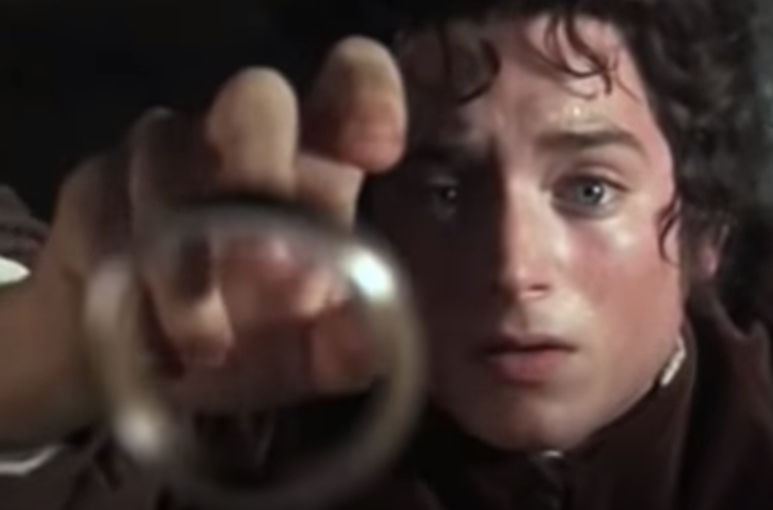

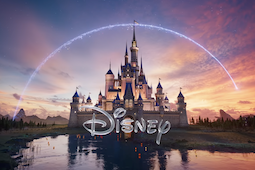


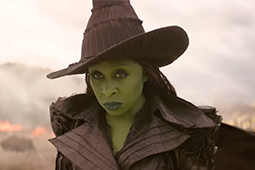

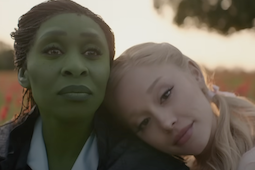

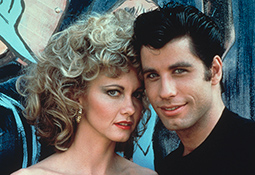


.jpg)
.png)





